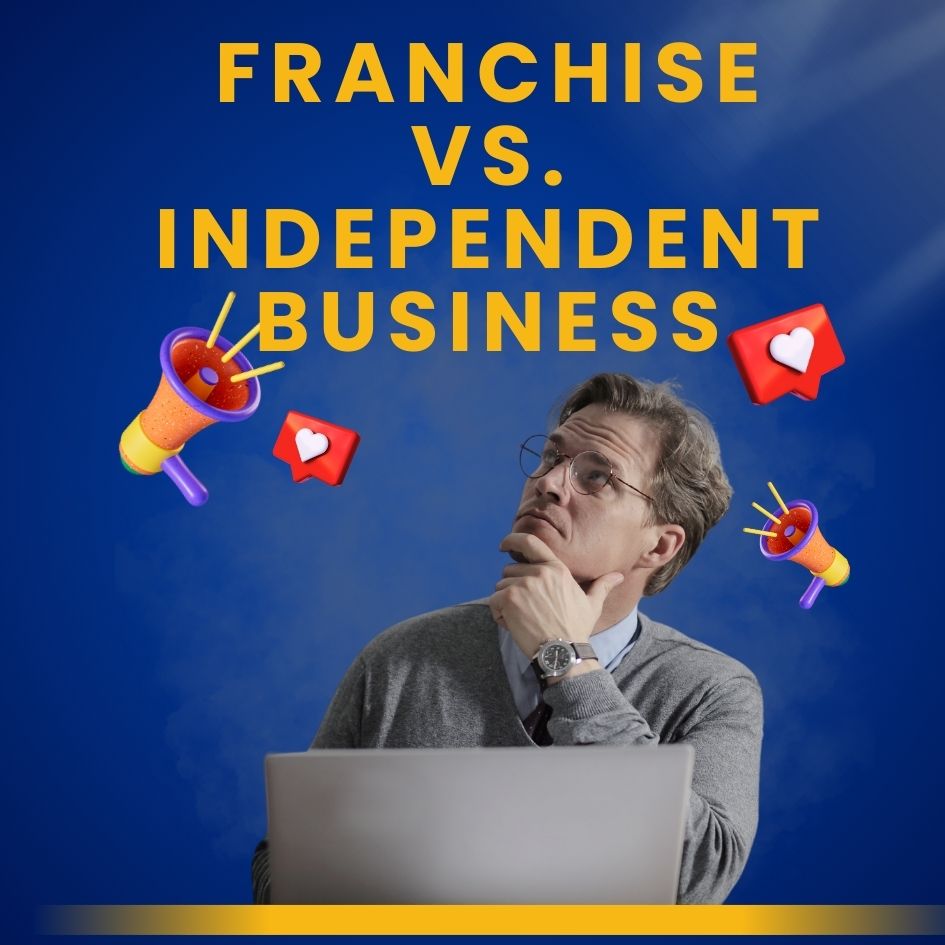Business
Franchise vs. Independent Business: Which One is Right for You?

Starting a business is a significant decision that requires careful planning and consideration. One of the most critical choices entrepreneurs face is whether to invest in a franchise or start an independent business from scratch. Both options offer unique benefits and challenges, and the right choice depends on your goals, resources, and risk tolerance. This article will explore the differences between franchises and independent businesses to help you determine which option is best for you.
What is a Franchise?
A franchise is a business model in which an individual (franchisee) purchases the rights to operate a business under an established brand (franchisor). The franchisee follows a proven system and benefits from brand recognition, ongoing support, and established marketing strategies. In return, they pay initial franchise fees and ongoing royalties to the franchisor.
What is an Independent Business?
An independent business is one that an entrepreneur starts from scratch without any affiliation with an existing brand. The owner has complete control over all aspects of the business, from branding and marketing to operations and pricing. While this option offers greater flexibility, it also requires more effort in building brand recognition and operational systems.
Key Differences Between Franchise and Independent Business
- Brand Recognition
- Franchise: Instant recognition and credibility due to an established brand.
- Independent Business: Requires significant effort to build brand awareness and trust.
- Startup Costs
- Franchise: Typically requires a substantial initial investment, including franchise fees, equipment, and ongoing royalties.
- Independent Business: Costs vary widely and can be lower, but expenses related to branding and marketing may add up over time.
- Support and Training
- Franchise: Provides comprehensive training, operational guidelines, and ongoing support.
- Independent Business: Owners must develop their own knowledge, resources, and networks.
- Flexibility
- Franchise: Limited flexibility; must adhere to franchisor’s guidelines and policies.
- Independent Business: Complete freedom to make changes and adapt to market trends.
- Risk Factor
- Franchise: Lower risk due to an established business model and support system.
- Independent Business: Higher risk due to unproven business models and lack of support.
- Profit Potential
- Franchise: Profits may be reduced due to royalty fees, but steady revenue can be achieved with a proven model.
- Independent Business: Potentially higher profits, but requires more effort and time to achieve success.
- Marketing and Advertising
- Franchise: National and regional marketing support is provided by the franchisor.
- Independent Business: The owner must create and fund their own marketing campaigns.
- Exit Strategy
- Franchise: Easier to sell due to brand recognition and established systems.
- Independent Business: May take longer to sell and requires demonstrating profitability to potential buyers.
Pros and Cons of Owning a Franchise
Pros:
- Proven business model
- Brand recognition
- Ongoing support and training
- Lower risk compared to startups
- Easier access to financing
Cons:
- High initial investment and ongoing fees
- Limited operational flexibility
- Dependence on franchisor decisions
- Potential market saturation
Pros and Cons of Running an Independent Business
Pros:
- Full control and flexibility
- No franchise fees or royalties
- Unique branding opportunities
- Potential for higher profit margins
Cons:
- Higher risk and uncertainty
- Requires significant effort to establish brand and customer base
- No established support system
- Potential difficulty in securing financing
Which Option is Right for You?
Choosing between a franchise and an independent business depends on your entrepreneurial goals, financial situation, and risk appetite. If you prefer a structured approach with lower risk and are willing to follow established guidelines, a franchise may be the better choice. However, if you value creative freedom, have a unique vision, and are willing to take on the challenges of building a business from scratch, an independent business could be the right path for you.
Final Thoughts
Both franchises and independent businesses have their unique advantages and challenges. It’s crucial to conduct thorough research, evaluate your strengths and weaknesses, and consider your long-term business goals before making a decision. Whether you choose to invest in a franchise or start your own business, success ultimately depends on your dedication, planning, and execution.
F.A.Q
Which option is more cost-effective?
The cost-effectiveness depends on various factors, including industry, location, and business goals. Franchises often require a higher upfront investment, but they come with built-in support. Independent businesses may have lower startup costs but can require more investment in marketing and infrastructure.
Which option offers better growth opportunities?
Franchises often provide better scalability due to their established brand and operational systems. However, independent businesses can also grow significantly if managed effectively with a unique value proposition.
Can I convert my independent business into a franchise later?
Yes, if your independent business is successful and has a replicable business model, you can consider franchising it to expand your brand and market reach.















